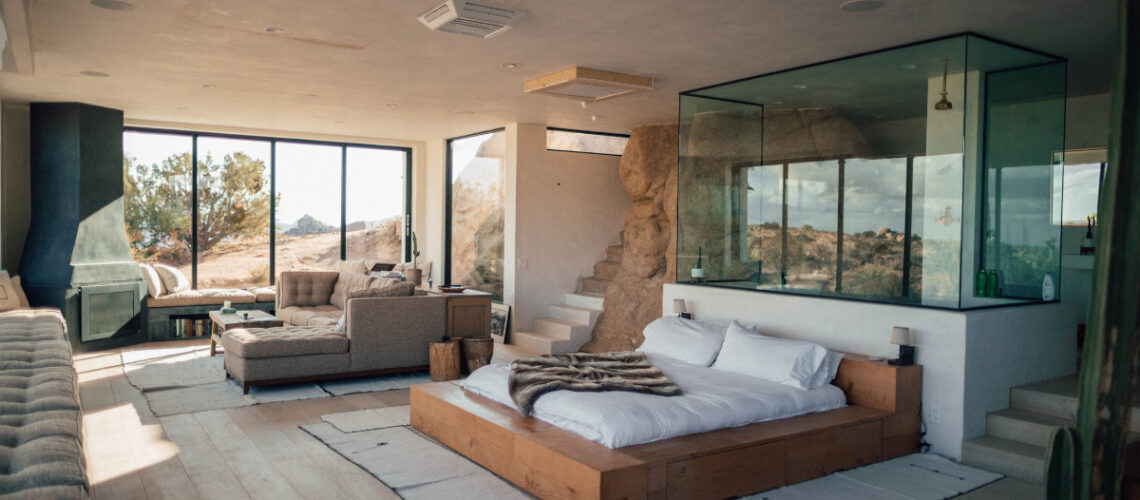The luxury hospitality industry is undergoing a transformative phase, driven by rapid technological advancements. In an era where guest expectations are constantly evolving, luxury hotels, including those managed by renowned groups like The Garcha Group, are leveraging technology to offer unparalleled experiences. From AI-driven personalization to smart room technologies, the integration of cutting-edge tech is redefining what it means to deliver exceptional service in high-end travel.
AI and Personalized Guest Experiences
One of the most significant technological trends in luxury hospitality is the use of Artificial Intelligence (AI) to create personalized guest experiences. AI enables hotels to analyze large amounts of data to understand guest preferences and tailor services accordingly. This can range from customizing room conditions such as temperature and lighting based on previous stays to offering personalized dining recommendations.
Smart Room Technologies
The concept of smart rooms is revolutionizing the guest stay experience in luxury hotels. These rooms are equipped with advanced technologies that allow guests to control every aspect of their environment through their smartphones or voice commands. Features like automated curtains, adjustable lighting, and smart entertainment systems are not just conveniences; they represent a new standard in luxury. Forward thinking properties in the hospitality industry are integrating these technologies to provide a seamless and modern experience for guests, ensuring that each stay is as comfortable as it is impressive.
Data Analytics in Service Tailoring
Data analytics plays a crucial role in understanding and anticipating guest needs. By analyzing past behavior and preferences, luxury hotels can offer highly customized experiences. This could involve aligning room amenities with guest interests or suggesting activities and experiences that resonate with their lifestyle. The application of data analytics extends beyond personalization; it also helps in optimizing hotel operations and improving overall service quality.
Enhancing Operational Efficiency
Technology is not only about enhancing guest experiences but also about improving operational efficiency. Automated check-in systems, for instance, reduce wait times and streamline the arrival process. Sophisticated property management systems (PMS) enable a more efficient allocation of resources, from manpower to energy usage. These systems can also integrate with other hotel technologies, providing a unified platform for managing various aspects of hotel operations, a strategy that The Garcha Group has adeptly employed in its Singapore properties.
Mobile Integration and Connectivity
The integration of mobile technology in luxury hospitality is a game-changer. Mobile apps allow guests to control many aspects of their stay from their smartphones, from check-in and check-out to room service orders and concierge requests. This mobile connectivity extends to on-site experiences as well, with guests able to book spa appointments or reserve tables at restaurants with just a few taps. This level of convenience and control enhances the guest experience, making it more personalized and accessible.
Virtual and Augmented Reality Experiences
Virtual and Augmented Reality (VR/AR) technologies are starting to make their mark in the luxury hospitality sector. These technologies can be used for virtual tours of the property, enabling guests to explore rooms and amenities before booking. AR can enhance the in-stay experience, providing interactive elements in rooms or offering augmented tours of the local area. This immersive tech adds an innovative edge to the traditional hotel experience.
Sustainable Technology Practices
Sustainability is a growing concern in the hospitality industry, and technology plays a vital role in addressing this. The Garcha Group, for example, uses energy management systems to reduce their environmental impact, aligning with the global shift towards sustainability. Smart systems can control heating, ventilation, air conditioning, and lighting, significantly reducing energy consumption. This not only supports environmental initiatives but also resonates with eco-conscious travelers.
Challenges and Future Prospects
While the adoption of technology in luxury hospitality offers numerous benefits, it also presents challenges. The need for continuous updates and maintenance of tech infrastructure, concerns about data privacy, and the necessity of training staff to use new technologies are some of the hurdles. However, the future prospects are bright, with emerging technologies like 5G, IoT (Internet of Things), and AI continuing to evolve and offering new opportunities to enhance the luxury hospitality experience.
Embracing technology in luxury hospitality is not just a trend; it’s a necessity in the pursuit of excellence in guest service. The innovative use of AI, smart technologies, data analytics, and sustainable practices are setting new benchmarks in the industry. Leading groups like The Garcha Group, in partnership with Marriott International, are at the forefront of this revolution, offering experiences that are not only luxurious but also smart, personalized, and sustainable. As technology continues to evolve, the luxury hospitality industry is poised to offer even more sophisticated and memorable experiences to its guests.

